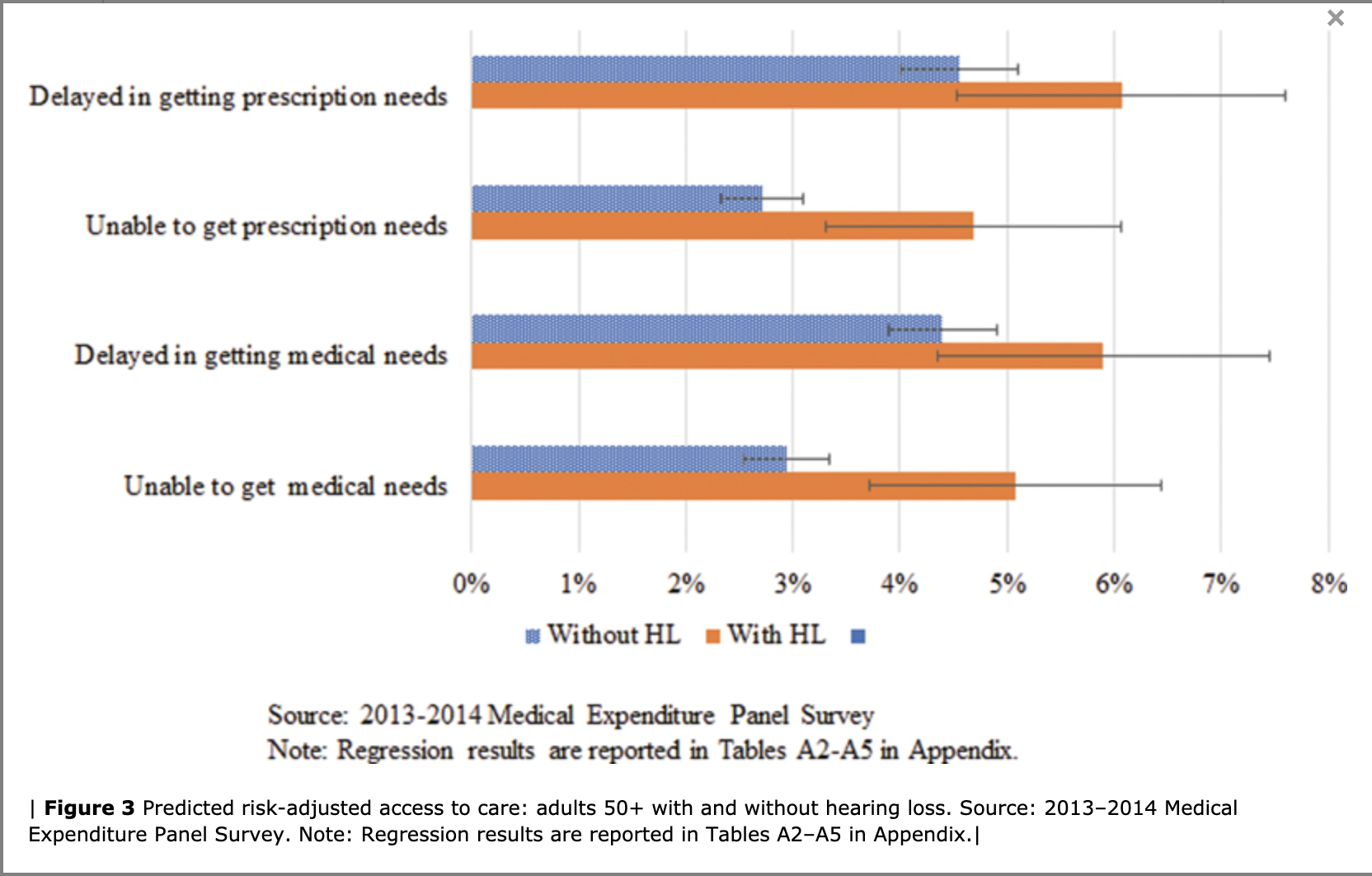Hearing loss is the third most common chronic condition among older adults, with over 50% of those 75 years and older already living with a significant hearing loss. Elham Mahmoudi, Ph.D., assistant professor, and a U-M Family Medicine team examine whether hearing loss is associated with poorer access to care, analyzing nationally representative data from the Medical Expenditure Panel Survey (MEPS) taken in 2013-2014. Co-authors include Philip Zazove, M.D., professor and the George A. Dean, M.D. Chair of Family Medicine; Terrence Pleasant, M.D., resident physician in the department of Otolaryngology-Head and Neck Surgery, Lisa M. Meeks, Ph.D., assistant professor; and Michael M. McKee, M.D., M.P.H., associate professor.
They published their findings in a paper titled "Hearing Loss and Healthcare Access among Adults," published April 2021 in Seminars in Hearing.
The paper at a glance
In a cross-sectional study of a nationally representative sample of adults 50 years and older with and without hearing loss, significant hearing loss was associated with having lower access to care. Individuals with hearing loss had a higher prevalence of chronic conditions, like hypertension, heart disease, stroke, emphysema, high cholesterol, diabetes, cancer, joint pain, and arthritis (all p < 0.001).
Risk-adjusted and propensity score–weighted odds:
- Unmet medical needs: OR = 1.85; 95% CI: 1.29–2.67
- Delays in getting medical care: OR = 1.37; 95% CI: 1.00–1.87
- Unmet prescription drug needs: OR = 1.81; 95% CI: 1.27–2.59
- Delays in getting needed prescription drugs: OR = 1.36; 95% CI: 0.99–1.87)
In the discussion, the authors write, "Our findings suggest that individuals with hearing loss experience more barriers in obtaining necessary care and prescriptions to help manage their higher health burdens."
They explain, "Difficulties in obtaining medications may be related to the higher out-of-pocket expenses that individuals with hearing loss frequently encounter. Despite clear benefits of using hearing aids, they are generally not covered by most insurance plans."
"Adults with hearing loss face significant communication barriers in healthcare settings. These communication struggles appear to affect their ability to obtain the appropriate information to manage their health. This may result in lower quality provider–patient interactions that may lead to lower adherence to recommended treatments. Hospital readmission rates were higher among those with HL and reported communication difficulties with health care staff and providers. It is plausible that lower quality interactions with providers may increase the need for additional medical care appointments to manage their health conditions."
Mahmoudi and her team conclude, "Additional steps are needed to ensure that health care is accessible and equitable for this growing population given that their risk of chronic conditions and adverse health events is elevated."
Article Citation: Mahmoudi E, Zazove P, Pleasant T, Meeks L, McKee MM. Hearing Loss and Healthcare Access among Adults. Seminars in Hearing. 2021;42(01):047-058. doi:10.1055/s-0041-1726000.
READ ALSO: Hearing aids linked to lower risk of dementia, depression and falls



